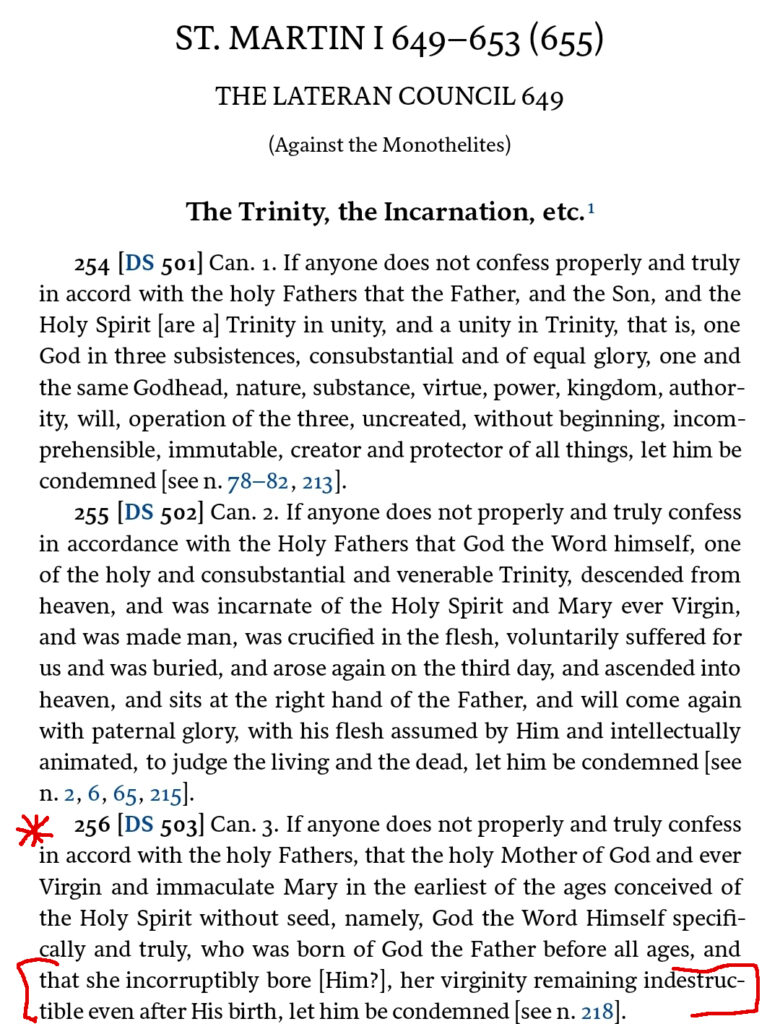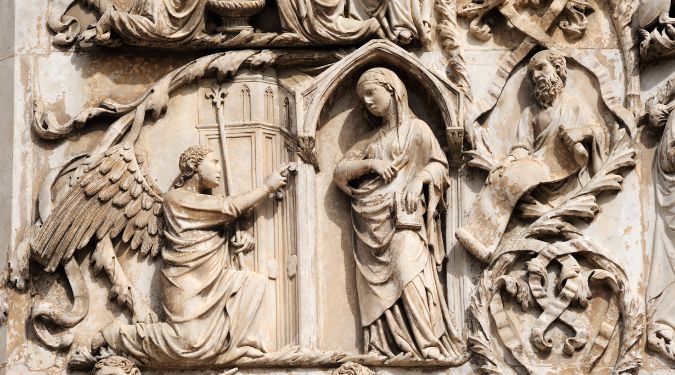- “Types” of the Blessed Virgin Mary and the Virginal Conception of Jesus mentioned in this article
- The Staff of Aaron – mentioned by St. Ephrem of Syria (d. 373 A.D.) in his “Hymns on the Nativity”, Hymn 1
- “The staff of Aaron, it budded, and the dry wood yielded fruit! Its mystery is cleared up today, for the virgin womb a Child has borne!“
- The Virgin Mary’s Womb as Ezekiel’s Closed Gate of the Messiah
- St. Ambrose of Milan (ca 390 A.D.)
- “Who is this gate (Ezekiel 44:1-4), if not Mary? Is it not closed because she is a virgin? Mary is the gate through which Christ entered this world, when He was brought forth in the virginal birth and the manner of His birth did not break the seals of virginity.“
- St. Augustine of Hippo (ca 430 A.D.)
- “It is written (Ezekiel 44, 2): ‘This gate shall be shut, it shall not be opened, and no man shall pass through it. Because the Lord the God of Israel hath entered in by it…’ What means this closed gate in the house of the Lord, except that Mary is to be ever inviolate? What does it mean that ‘no man shall pass through it,’ save that Joseph shall not know her? And what is this – ‘The Lord alone enters in and goeth out by it,’ except that the Holy Ghost shall impregnate her, and that the Lord of Angels shall be born of her? And what means this – ‘It shall be shut for evermore,’ but that Mary is a Virgin before His birth, a Virgin in His birth, and a Virgin after His birth.“
- St. Ambrose of Milan (ca 390 A.D.)
- The Staff of Aaron – mentioned by St. Ephrem of Syria (d. 373 A.D.) in his “Hymns on the Nativity”, Hymn 1
- On Ensoulment
- On Mary’s Perpetual Virginity
- Mary, Ever-Virgin, from the Catechism of the Catholic Church, 499
- 499 The deepening of faith in the virginal motherhood led the Church to confess Mary’s real and perpetual virginity even in the act of giving birth to the Son of God made man. In fact, Christ’s birth “did not diminish his mother’s virginal integrity but sanctified it.” And so the liturgy of the Church celebrates Mary as Aeiparthenos, the “Ever-virgin”.
- Mary, Ever-Virgin, from the Catechism of the Catholic Church, 499
Pope St. Martin I and the Lateran Council of 649 AD is one dogmatic source for the Church’s belief that Mary bore her Son without any violation of her virginal integrity.

Go back to the main resource page for the Catholic Study Group
